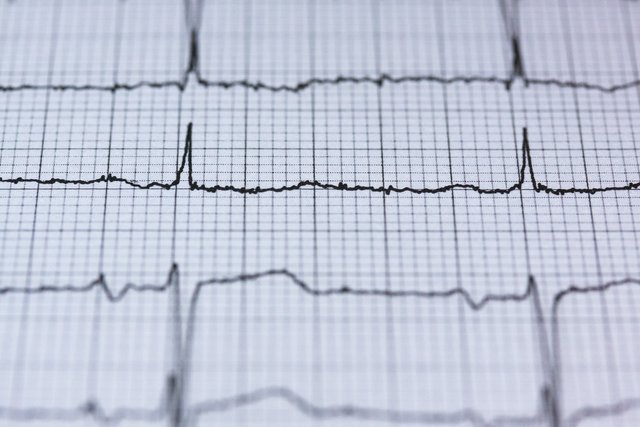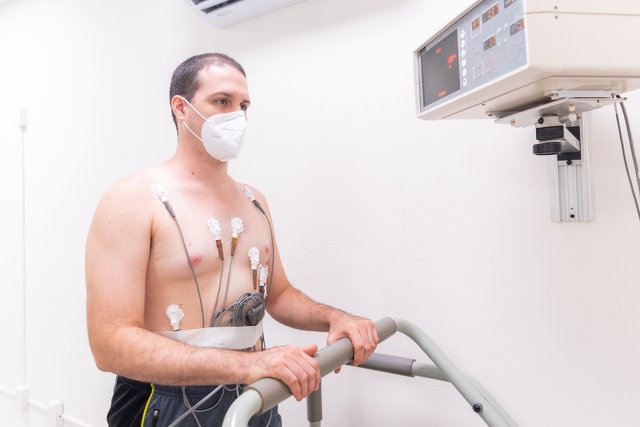
Get the Facts on Hearts
You're well aware that a poor diet and insufficient exercise can harm your heart.
However, there are many hidden causes of heart disease that you may not be aware of.
Here are a few to be aware of, as well as some heart-friendly actions to help you stay healthy.
Dental issues
Do you need a little extra encouragement to brush and floss every day?
Gum disease is linked to an increased risk of heart disease.
Although the link is unclear, some scientists believe that bacteria from your gums may enter your circulation, causing blood vessel inflammation and other cardiac issues.
Checkups with your dentist should be done every six months.
If you notice redness or pain on your gums, or changes in your teeth, schedule an appointment straight once.
Work in Shifts
According to a recent study from Western University in Canada, working late or irregular hours increases your chance of a heart attack.
Shift employment, according to researchers, has a negative influence on the body's circadian rhythm (also known as your "internal clock"), which may hurt your heart.
So, if you don't work during the day, take extra precautions to reduce your risk of heart disease:
Get some exercise, consume a healthy diet, and visit your doctor on a regular basis.

Delays in Traffic
Anyone who has ever been trapped in bumper-to-bumper traffic knows how stressful it can be.
That might explain why a single hour spent stuck in traffic has been linked to an increased risk of a heart attack in studies.
High noise levels, such as those found on a motorway, have also been related to heart disease.
If you can't avoid commuting during rush hour, try listening to soothing music to relieve tension.
Alternatively, you may share the journey and converse with your other passengers.
Menopause in its Infancy
If you're a woman and you reach menopause before the age of 46, your chances of suffering a heart attack or stroke are likely to be twice as great as if you wait till later.
A decrease in estrogen, a hormone that has ticker-friendly effects, might be a factor.
Request a test for heart disease risk factors from your doctor (like high cholesterol).
Snoring
Consult your doctor if your spouse claims you snore frequently or sound like you're gasping for air while sleeping.
You might be suffering from a dangerous illness known as apnea.
It occurs when your airway is partially closed, causing you to have breathing pauses.
High blood pressure, an irregular heartbeat, strokes, and heart failure are all connected to the disease.
Treatments can make it easier to breathe and reduce your risk of heart disease.
Hepatitis C
If you have this type of liver infection, you're more likely to have low cholesterol and blood pressure than those who don't.
Even so, you have an increased chance of developing heart disease.
Hepatitis C is thought to induce inflammation of the body's cells and tissues, including those in the heart, according to researchers.
Keep track of any cardiac symptoms with the help of your doctor.
Having Trouble Sleeping
You increase your risk of high blood pressure and cholesterol if you sleep less than 6 hours every night on a regular basis.
It raises your chances of being fat and developing diabetes (both of which can hurt your heart).
That isn't to say you should sleep the entire day away.
Spending more than 9 hours horizontal on a regular basis increases your chances of diabetes and stroke, all of which are important risk factors for heart disease.
Aim for 7 to 9 hours of sleep every night for your brain, body, and heart.
An Unhappy Marriage
A happy and healthy heart is the result of a good match.
According to a recent study from Michigan State University, older persons who are happy in their marriages have a reduced risk of heart disease than those who aren't.
What is the most likely cause? Stress.
When you're anxious, you're more likely to eat poorly and do other things that are harmful to your health, such as consuming too much alcohol.
Stress hormones may also have a harmful impact on the heart.
If your marriage isn't working well, consider attending a couples' therapist or a clergy person jointly.
Loneliness
Spending time with loved ones relieves stress and encourages you to keep active.
People who are lonely are more prone to get heart disease.
If you don't live near relatives or friends, reach out by assisting someone in need or adopting a puppy or cat.
Volunteers and dog owners may live longer and have better heart health.
Belly Fat
Any additional weight is bad for your heart, but the type that accumulates around your stomach is particularly harmful.
It might cause your body to produce hormones and other substances that elevate blood pressure and damage blood vessels and cholesterol levels.
If you're a woman with a waist circumference of more than 35 inches or a male with a circumference of more than 40 inches, consult your doctor about a diet and activity plan.
Yoga and brief bursts of high-intensity exercise have been shown to help slim your midsection.
Too Much TV Watching
Get up, couch potatoes!
People who spend a lot of time in front of the television are more likely to have cardiac issues than those who watch less TV.
Every hour you spend watching television on a daily basis raises your risk by about 20%.
The most likely cause is sitting, which has been linked to health issues such as high blood pressure.
Try to minimize your time in front of the television until studies figure out how and why TV and cardiac problems are linked.

Too Much Exercise All at Once
Exercise is beneficial to the heart.
If you're out of shape or just work out on a regular basis, start cautiously and gradually increase your endurance.
According to studies, exercising for too long or too hard might put you at risk for heart attacks and other illnesses.
Are you unsure about what's safe for you?
Begin with a low-impact activity such as walking.
Consult your doctor if you have a high risk of heart disease and consider wearing a heart monitor while exercising.